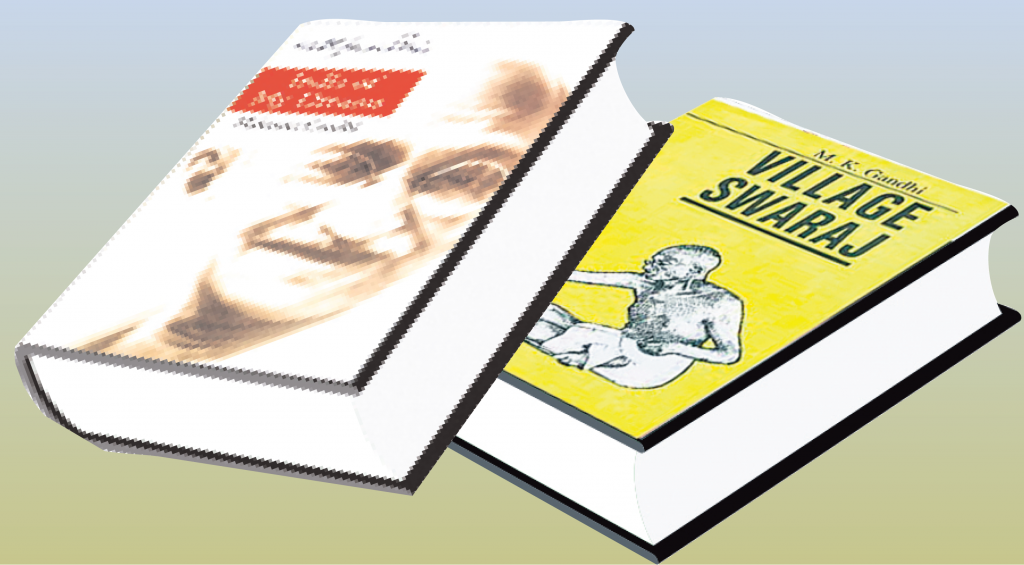Mahatma Gandhi was among the greatest leaders of our times. He was an excellent writer and author of several books including his autobiography titled My Experiments with Truth. He also wrote extensively on vegetarianism, diet and health, rural reforms, Gita, religion, and social reforms. Gandhi usually wrote in Gujarati, although he revised the Hindi and English translations of his books.
He edited a newspaper Harijan in Gujarati, Hindi and English. Besides, he wrote several letters, almost daily, to individuals and newspapers. His complete works were published by the government of India under the title The Collected Works of Mahatma Gandhi in the 1960s.
Orissa POST interacted with a cross-section of people, who shared their experience of reading Gandhiji’s books and how his philosophy impacted them in their everyday life.
Freedom fighter Bhabani Charan Pattanayak, a Padma Shri awardee and politician, said, “No book can describe Gandhi completely. His philosophy of non-violence is a model not only for Indians but the whole world. Reading his books is essential for everyone to lead a successful life. It is said before you write something, you need to be a voracious reader and Bapu has proved it. He was a lover of books which helped him shape his ideals and thoughts. He left a lasting impact through his ideals and philosophies, especially ahimsa and non-violence. He followed every book that motivated him. He followed Bhagavad Gita as his daily reference manual to live his life. Gita became an indispensable guide of conduct for him. He explained the extent to which the Gita helped him, ’When doubt bothers me and when I don’t see any ray of light on the horizon, I turn to Bhagavad Gita, and find a verse to comfort me’.”
“He has written a few books but the books compiled by others on Gandhiji are no less than any tutorial to give a shape to your life. If you go through his books, you will get hundreds of ways to come out of difficult situations in life. His books tell you how to live a healthy and happy life. Also they inspire you to do good for others irrespective of their caste and religion. His philosophy will make a difference in your life,” Bhabani added.
Dilip Rout, a senior advocate of Orissa High Court, said, “Gandhiji was a trained barrister but his attempts to practice law in Bombay did not take off, apparently because of his emotional failure in cross-examining witnesses. Gandhiji’s values, for us lawyers, mean a lot more. He was one among us, probably the best among us, whose ideals we can aspire to. I can only emphasise Gandhiji’s attributes which I feel are relevant for us and help us to go forward. Being a lawyer, how can I skip reading his books? I have read his My Experiments with Truth wherein he advocated ‘Resolution Instead of Litigation’ as he believed that the true function of a lawyer was to unite parties not to separate.”
“His influence came from his strong sense of justice. As lawyers, if we consistently maintain a strong sense of justice, in the long run, it will pay dividends, even if this implies a concession to the other side. If we form our arguments based on a sense of justice for the society, it will provide the court a holistic perspective on the law. Thus, any judgment rendered will benefit the society as a whole. For instance, the verdict provided by the Supreme Court on triple talaq and the right to privacy upheld in the Aadhaar judgment recently stand testimony to this,” he added.
Rakesh Kumar Rout, an engineering student, said, “Decades after his death, we still cherish Mahatma in our hearts for his lifestyle and philosophies. Whether it was his fight against illiteracy or his mission to uplift distressed sections of society, we always saw him fight for what he believed was right. His books are a source of inspiration for many. I have read his book India of my Dreams, which is a compilation of passages from his writings and speeches that give us an idea of the dream Gandhiji had for a free and independent India. This book is a marvellous source of inspiration for those who want to do good in society. I may not be a follower of Gandhiji but when I sense something wrong, I turn to his thoughts to overcome the problems.”
Puspanjali Mishra, a homemaker of Bhubaneswar, said, “There is a movie which depicts the effect of reading the books of Gandhiji. I read some of his books after watching the movie. It changed my perception of life. Being a working lady, I have to work hard at home as well as in office. During the initial days, I found it difficult to sync my life with work but his books give me the courage to keep my job. Following his belief that the force of power never wins over the power of love, I learned to respect people and that bettered my life.”
Sanjay Swain, a businessman of Bhubaneswar, said, “The man who has been much talked and written about penned a few books himself. In his writings, he spoke extensively about industrialisation, villages, mental health, honesty, hard work, and social progress. Whoever you are, you will benefit by reading his books. The first thing I learned from him is to be honest with work and that helped me to achieve success. You may not be able to implement his philosophy entirely, but even if you follow it in parts, it will help you.”
Bhubaneswar-based Debabrata Tripathy, a politico, said, “Gandhi is so overwhelming a figure, he cannot be contained in a single book nor can he be defined in one single term. He was a charismatic politician, writer and orator. Knowing that violence only begets violence, he began practicing reactive resistance, Satyagraha. Gandhiji is very relevant in today’s society, but nowadays, people recall him only on currency notes. Yes, his books do inspire me to work for people.
“When you aspire to be a leader, you need to influence others with your qualities and, regardless of your position or authority, they follow you. His leadership skills stemmed from his focus on the purpose of life, discipline, and his belief systems. If our leaders followed him, they would not be making tall promises that they have no intention of keeping,” he added.
SOYONG, OP

